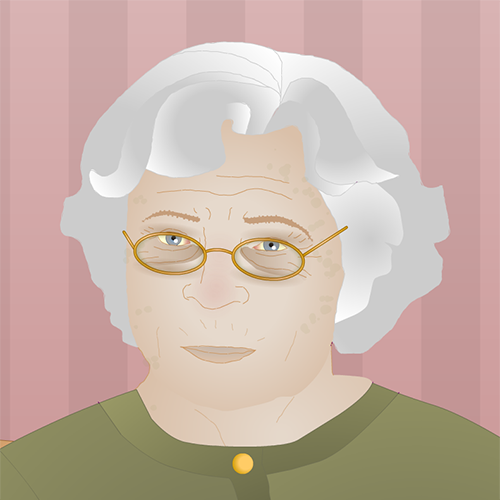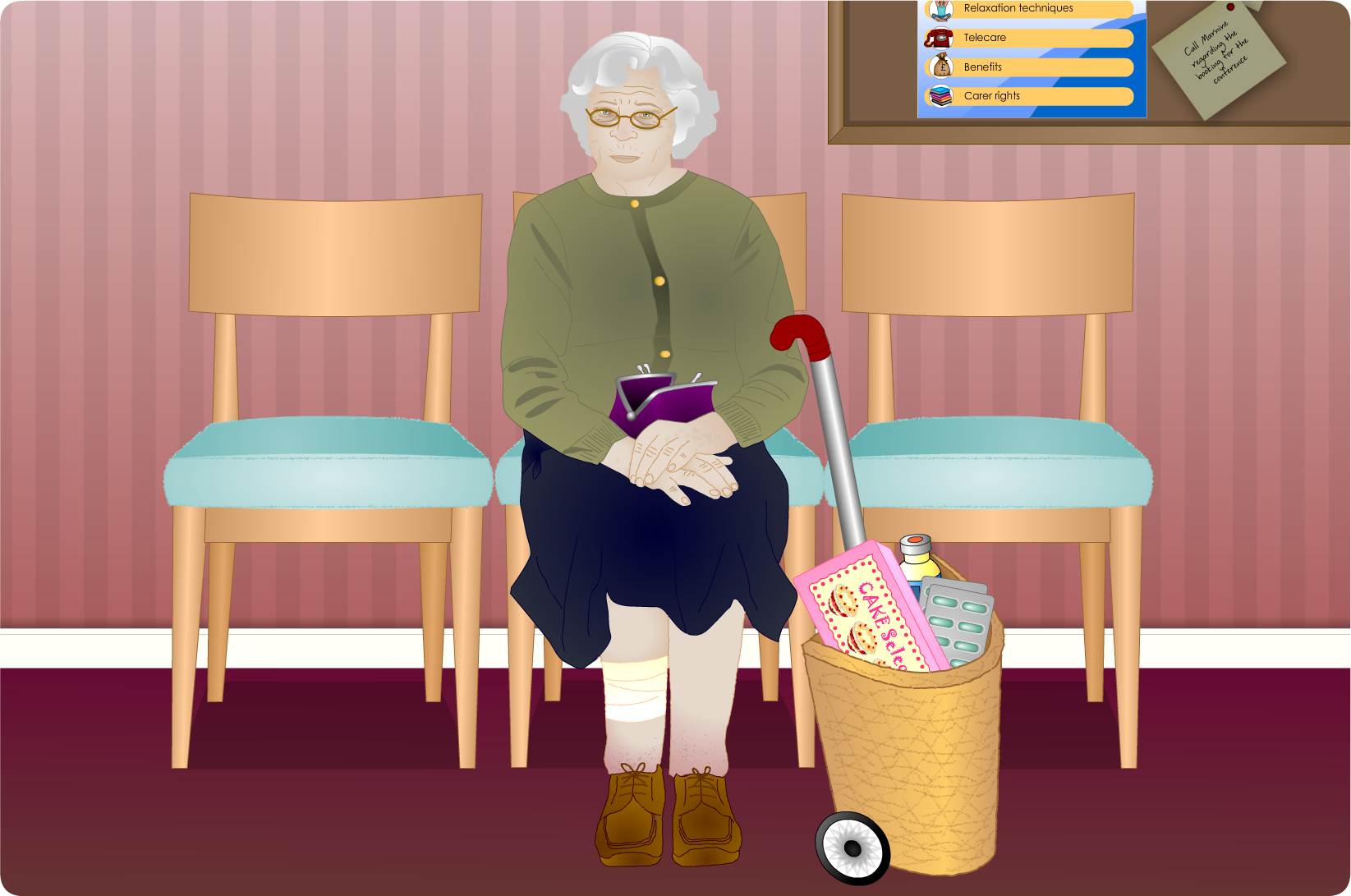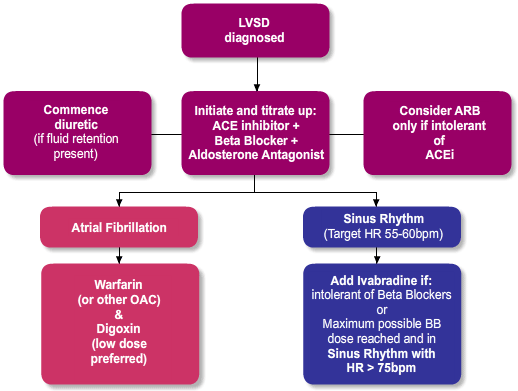
The GP makes Molly more comfortable on the couch before examining her. The GP asks Molly how long this has been getting worse.
| Findings |
Rationale |
Linked to Molly´s heart failure |
BP 90/60(sitting)
80/50 (standing) |
Low BP is common when symptoms are worsening you should always check erect and supine BPs. check dehydration and medication compliance |
Dizziness is worse when standing |
| Pulse 66 and regular |
Check pulse manually as heart failure patients are prone to developing arrhythmia |
Molly is on multiple medications which can affect pulse rate and rhythm |
| NYHA class III – (See Additional Information) |
Listen to chest for fluid and/or infection and to assess which NYHA class she is in as compared to previously |
NYHA class is deteriorating as she has increased breathlessness and oedema |
| Routine blood tests |
To assess renal function, haemoglobin, liver function, blood glucose in comparison to her previous results |
Molly´s symptoms could be linked to worsening blood results |


Molly MacKenzie is a 82 year old lady who has come to the surgery for the wound clinic. She was diagnosed with LVSD 8 years ago in the cardiology clinic. She was discharged from the cardiology clinic due to her valve disease being in-operable. Molly also has diabetes and renal disease. She has a leg ulcer which is not healing. Molly lives alone, was widowed young and doesn´t have any children but does have a niece who visits once a month.
By the end of this case you should be able to:
- Identify HF symptoms to prompt early diagnosis and management
- Understand the NHYA tool and it’s application to guide therapy
- Develop an awareness of the non-pharmacological and pharmacological management of HF
Raza is now stable and optimised on evidence based medicine and is adapting his lifestyle to self-manage his condition. He felt he was given supportive education, which was realistic and centred around his needs. He is now back at work and coping well.
He has been given an appointment for follow up in 6 months with the cardiologist where he will be reassessed and his future management discussed again.
Raza been referred to the HF nurse service. He has continued to improve and his drugs are being titrated. He is keen to resume physical activity and has a few questions about what activities are safe for him.
Remember: The key to successful management of long term conditions ultimately rests in the hands of the person who lives with the condition and their ability and aspiration to care about themselves, however they may require support to self manage. (COSMIC 2013).
Anticipatory care tries to consider these factors in supporting self management.
- Self Care: What each person does on an everyday basis is often compromised for a person living with a long term condition such as heart failure.
- Self Management: The process each person develops to manage their condition.
Medical Therapy Guidance

| NYHA CLASS |
PRESCRIBE |
| Step 1: NYHA I-IV |
ACE BetaBlocker |
| Step 2: Still NYHA II-IV and EF≤35% despite Step 1 |
Add Spironolactone or Eplerenone (specialist advice) |
| Step 3: Still NYHA II-IV, EF≤35%, SR and heart rate ≥70bpm despite Steps 1 and 2 |
Add Ivabradine (specialist advice) |
The above medications can be given in conjunction with a loop diuretic if indicated. Although there is no evidence for diuretics, they do improve symptoms.
See the additional information box to find out what we should consider when breaking bad news.






